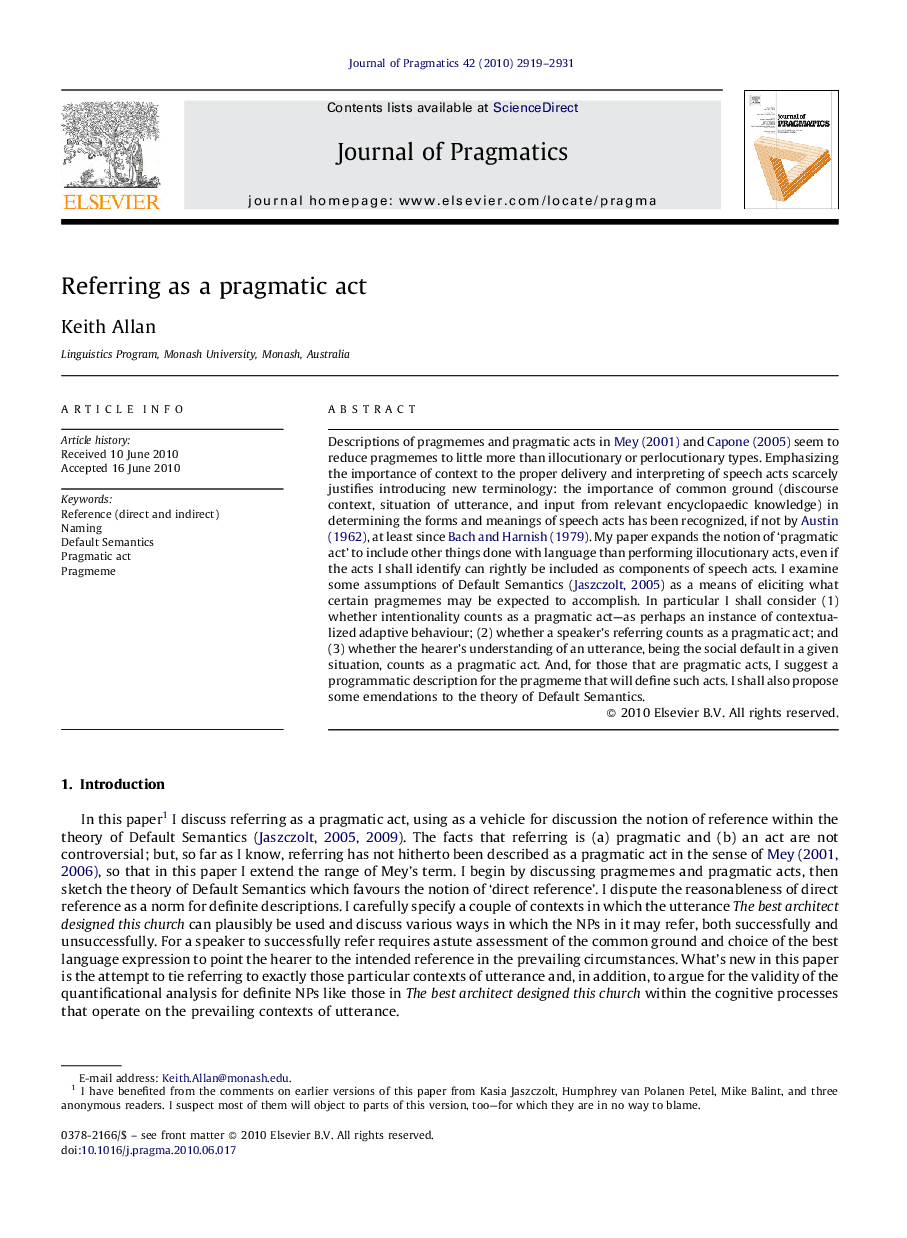| Article ID | Journal | Published Year | Pages | File Type |
|---|---|---|---|---|
| 933535 | Journal of Pragmatics | 2010 | 13 Pages |
Descriptions of pragmemes and pragmatic acts in Mey (2001), and Capone (2005), seem to reduce pragmemes to little more than illocutionary or perlocutionary types. Emphasizing the importance of context to the proper delivery and interpreting of speech acts scarcely justifies introducing new terminology: the importance of common ground (discourse context, situation of utterance, and input from relevant encyclopaedic knowledge) in determining the forms and meanings of speech acts has been recognized, if not by Austin (1962), , at least since Bach and Harnish (1979), . My paper expands the notion of ‘pragmatic act’ to include other things done with language than performing illocutionary acts, even if the acts I shall identify can rightly be included as components of speech acts. I examine some assumptions of Default Semantics (Jaszczolt, 2005) as a means of eliciting what certain pragmemes may be expected to accomplish. In particular I shall consider (1) whether intentionality counts as a pragmatic act—as perhaps an instance of contextualized adaptive behaviour; (2) whether a speaker's referring counts as a pragmatic act; and (3) whether the hearer's understanding of an utterance, being the social default in a given situation, counts as a pragmatic act. And, for those that are pragmatic acts, I suggest a programmatic description for the pragmeme that will define such acts. I shall also propose some emendations to the theory of Default Semantics.
